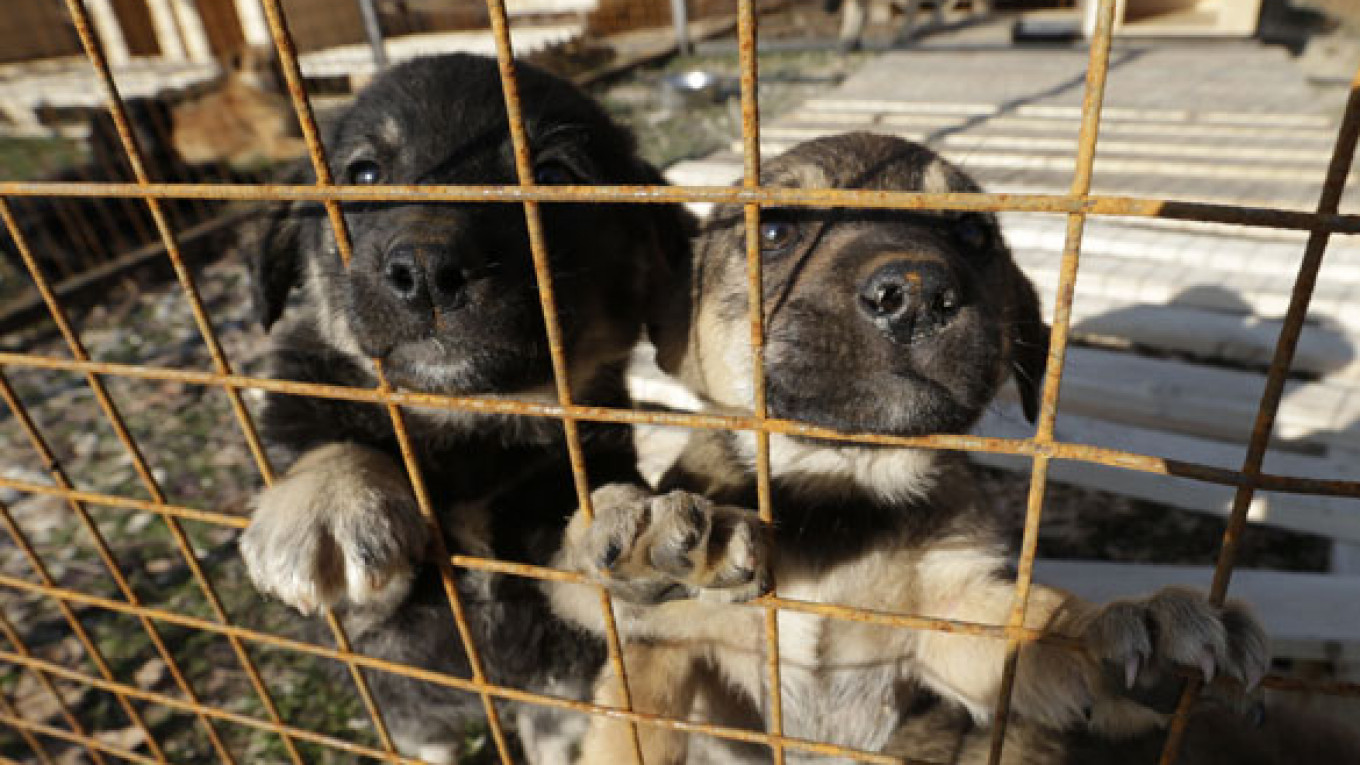SOCHI — A Russian billionaire who has invested heavily in the Winter Olympics has found a novel way to help President Vladimir Putin stage a successful Games — by funding a shelter for Sochi's stray dogs.
Oleg Deripaska's gesture could help save hundreds of dogs that are in danger of being rounded up and destroyed as the host city on the Black Sea tries to clear them off the streets.
It could also help keep Deripaska in Putin's good books after speculation over the dogs' fate threatened to undermine the president's hopes of using the Games to portray Russia as a tolerant, modern state.
"You do not see what is going on here [in Sochi]?" Sonya Turpyetkina, a veterinarian, said of the treatment of the many dogs that roam free. "I keep seeing poisoned bait. This is repulsive, they are dying in horrible pain."
She is a volunteer at the shelter funded by Deripaska at Baranovka near Sochi. As she spoke to Reuters at the shelter, he was visiting the site, showing a group of people around.
The shelter houses only about 40 dogs in basic pens, but city officials say such protection offers the animals a chance of finding a permanent owner and home.
A Sochi city official said no healthy dogs were being killed in the city even though a local company says it has a contract to round them up, and the International Olympic Committee also has said only sick and dying dogs are being destroyed.
But animal rights activists have launched a campaign to save the dogs, which has attracted negative publicity to Sochi and appears to have prompted Deripaska to step in.
He has been quoted as saying he has loved dogs since he was a boy. But his act is far from his first that could be beneficial to the Games, which he says he believes can turn Sochi into a thriving modern resort.
Putin's Patronage
Deripaska's company Basic Element has said it invested $450 million in the renovation of Sochi's airport, and $187.5 million in a nearby cargo port which will be turned into a smart marina.
It also said investment on the Olympic Village and a residential complex for the Olympic family and members of the International Paralympic Committee had exceeded $750 million.
Underlining that he sees such funding as an investment and not a charity, the 46-year-old executive said Monday that: “Sochi, at least for our group, will not be a loss-making project,” RIA-Novosti reported.
Deripaska, a former physicist who came to control RusAL, the world's largest aluminium company, is also building a highway in the area.
He estimates that each Olympic project needs a further 10 to 15 percent investment to ensure its success, even though the Games are widely expected to cost more than $50 billion.
He and other rich businessmen in Russia, often referred to as oligarchs, are well aware of the danger of falling out with Putin.
More than a decade ago, Putin clipped the wings of the tycoons who amassed political influence as well as vast riches in the 1990s and made clear they should not step out of line.
One of the oligarchs, former Yukos oil company chief Mikhail Khodorkovsky, was arrested at gunpoint in 2003 after falling out with the president and later jailed on charges of tax evasion and money laundering. At the time, Khodorkovsky was Russia's richest man. He was finally released less than two months ago, following a pardon by Putin.
A Message from The Moscow Times:
Dear readers,
We are facing unprecedented challenges. Russia's Prosecutor General's Office has designated The Moscow Times as an "undesirable" organization, criminalizing our work and putting our staff at risk of prosecution. This follows our earlier unjust labeling as a "foreign agent."
These actions are direct attempts to silence independent journalism in Russia. The authorities claim our work "discredits the decisions of the Russian leadership." We see things differently: we strive to provide accurate, unbiased reporting on Russia.
We, the journalists of The Moscow Times, refuse to be silenced. But to continue our work, we need your help.
Your support, no matter how small, makes a world of difference. If you can, please support us monthly starting from just $2. It's quick to set up, and every contribution makes a significant impact.
By supporting The Moscow Times, you're defending open, independent journalism in the face of repression. Thank you for standing with us.
Remind me later.






